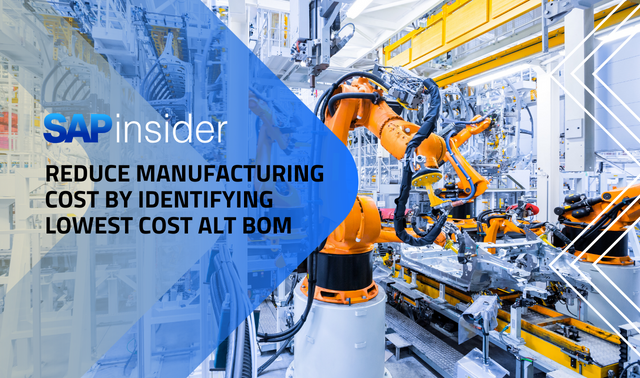Digital Transformation in Manufacturing with SAP’s Industry 4.0 solutions
Meet the Authors
Key Takeaways
⇨ Many manufacturers now realize the advantages of adopting a holistic Industry 4.0 strategy that integrates AI, ML, IoT, and automation
⇨ Manufacturers must convert operational data, gathered from assets, machinery, and product lifecycles, into actionable insights.
⇨ SAP's industry 4.0 solutions equips organizations to tackle present difficulties and future-proofs their operations, enabling the creation of anything, anytime, anywhere.
Manufacturers increasingly understand the benefits of an all-inclusive Industry 4.0 strategy employing AI, ML, IoT, and automation. To extract maximum value, it’s essential these technologies form a cohesive strategy addressing current manufacturing challenges such as supply chain disruptions, workforce deficits, and regulatory shifts that require agility, efficiency, and sustainability.
Manufacturers should convert operational data from assets and product lifecycles into actionable insights, leading to benefits like improved equipment efficiency, inventory automation, production optimization, and workforce empowerment.
A comprehensive Industry 4.0 approach prepares organizations for current and future challenges, enabling flexible manufacturing. SAP facilitates this transition with services designed to simplify the move to Industry 4.0, incorporating best practices, preconfigured solutions, deployment options, and consolidated business content. With a unified approach, manufacturers can fully exploit Industry 4.0 potential. SAP offers a four-step roadmap for initiating this process.
1) Develop a comprehensive, long-term strategy for Industry 4.0. Aligning this plan with overarching business objectives such as profitability and global growth is crucial. Focusing on how improved efficiency, agility, and sustainability can bolster these goals along with the cross-functional benefits of certain initiatives or technologies can provide competitive edge. Businesses should aim to transition projects swiftly from pilot stages to full production, and then proceed to the next task. A modular strategy to Industry 4.0 provides an efficient means of achieving process transformation. Many organizations face difficulties in mapping out a roadmap or initiating pilot programs due to constraints like inadequate staff, expertise, or leadership. Engaging a strategic partner can help guide organizations through the Industry 4.0 transformation, swiftly and effectively moving projects from pilot phases to production.
2) Focus on your primary business goals. Quick delivery, product customization, and sustainability support business targets, such as gaining a competitive advantage, fostering new business, and boosting revenue through customer loyalty. Organizational vision should address these goals. Each enterprise’s transformation journey is unique and might encompass process modernization, supply chain optimization, or the adoption of smart systems, depending on the most sought-after business objectives. After identifying desired outcomes, developing a convincing return on investment (ROI) case to allocate budget resources can help.
3) Identify the right tech enablers for your business.
The primary objective extends beyond simply integrating technology; it centers on employing it as a tool to address business challenges. Attention should be placed on capitalizing on the valuable insights generated from data produced by technological solutions, with the intent to improve overall business performance. The crucial component lies in extracting insights that stimulate informed decision-making. It is advisable for manufacturers to align themselves with reputable technology companies that comprehend their business objectives and operations, in addition to the pivotal role that technology serves in realizing these goals. Such collaborative partners should illustrate the relevance of their solutions to your specific business scenarios and potential results.
4) Work within a partner ecosystem that provides visibility.
To circumvent developmental stagnation and successfully transition into the fourth industrial revolution, it is imperative to employ a holistic approach. This encompasses the unification of your enterprise through the synchronized implementation of business procedures with manufacturing, thereby innovating work processes. A compatible network is instrumental in integrating essential business functions with smart analytics, which enhances comprehension of the existing infrastructure and solutions. Furthermore, it provides flexibility in foreseeing, modulating, and averting potential issues before they interfere with business processes. Seek a partnership with a solution-centric network that has a track record of success and the expertise to support you in formulating a resilient vision for Industry 4.0. Service providers ought to demonstrate comprehensive capabilities and a broad spectrum of solutions to ensure seamless operations—from strategic planning to day-to-day operations.
Read more at SAP







